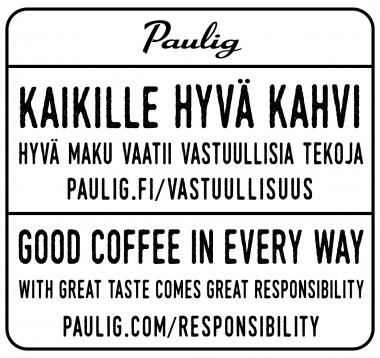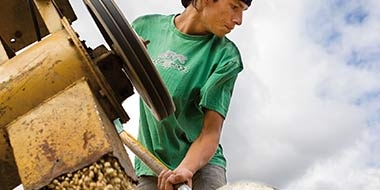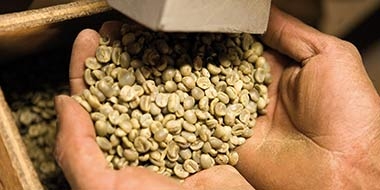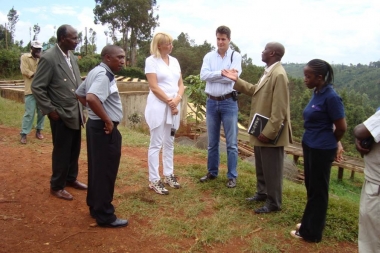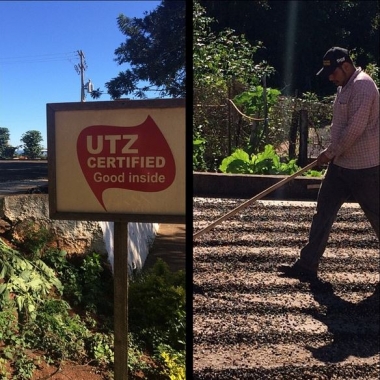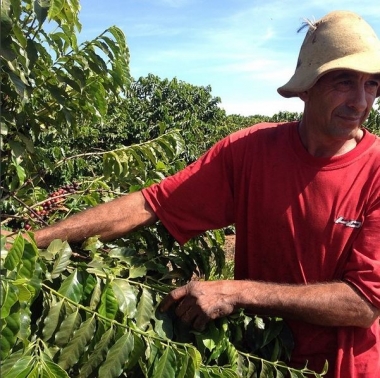Our goal is to ensure that all of the coffee we produce, from bean to cup, is sustainable. The work is challenging and requires vigilance, as well as the constant development of our procedures. We employ the industry’s known responsibility certifications, as well as our own and third-party inspections.
The main part of our sourcing is made up of green coffee, but we additionally purchase a large quantity of materials, products and services. We have invested in long-term strategic collaboration with our suppliers, which are chosen based on detailed criteria. Unified purchasing procedures and guidance applies to all sourcing (Paulig Group Code of Conduct for Suppliers).
One of the goals of our Sustainable Coffee responsibility programme, started in 2013, is for all green coffee purchased by Paulig to be from verifiably sustainable sources by the end of the year 2018. We ensure sustainability by visiting the locations ourselves or by concentrating our purchases on coffee that is certified and verified to be sustainable. The transition will be performed in phases during 2015–2018. The goal is for the portion of these coffees to be increased during the programme, in accordance with the following steps:
TRANSITION TO VERIFIED SUSTAINABLE COFFEE
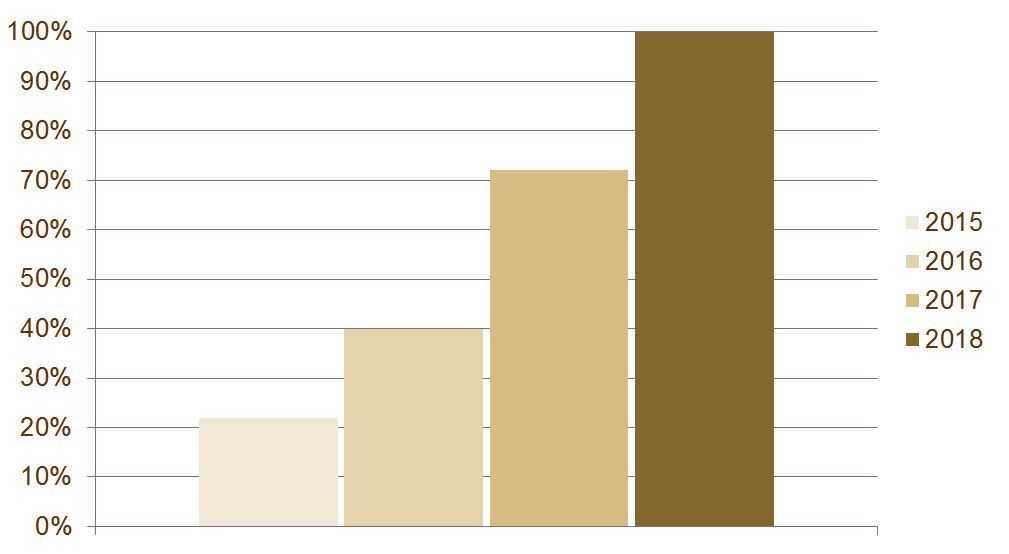
Even though all of our green coffee will come from 100% sustainability-certified sources by the end of 2018, there will not necessarily be one single symbol to indicate the sustainability certification. For example, our most popular coffees Juhla Mokka and Presidentti are blends of coffees from several countries of origin, which are certified by different certification programmes. Blending coffees with various origins creates the desired flavour for the coffee products, and ensures that it stays uniform from one package to the next.
Approximately 20% of all of the world’s green coffee is sold with sustainability certification. There are several certification programmes in use in the coffee industry, which ensure environmental friendliness and ethical production. In all programmes, sustainable development is the goal, but the operating methods and principles differ to a certain extent. In order to receive and maintain certification, regular, independent annual inspections are required. Certification always includes guidelines according to which the coffee must be produced. The guidelines include demands pertaining to protecting the environment, occupational safety and the age of workers, living conditions, wages and rights, among other things. The production of coffee using certified sustainable raw materials is challenging at times, since the accessibility to certified sustainable coffee varies from country to country.
The leading coffee industry certifications are UTZ CERTIFIED, Rainforest Alliance, Fairtrade and Organic, as well as the Swedish KRAV certification, and the most well-known verification system is 4C.
Traceability is a part of risk and quality management in the coffee supply chain
Coffee traceability enables information on raw material quality issues and supply chain ethics to be ascertained. The more we know about the origin of the coffee, the easier it is to ensure the functionality of the delivery and supply chain, and to solve any problems in it.
Due to the huge scale of the coffee trade, and the small size of the coffee farms, traceability all the way to the source is challenging. There is still work to be done to allow us to ensure the traceability of all coffee, since no practices are available which are utilised worldwide. There are also vast differences between the coffee-producing countries. Simultaneously, consumer interest in the origin of coffee is constantly increasing.
We are developing the traceability of all of our purchased coffee, in a focused manner and in collaboration with our partners. At present, 100% of coffee purchased by Paulig can be traced all the way back to the exporting companies, approximately 90% to the cooperatives and processing plants, and approximately 40% to the coffee farms. The traceability varies according to the country of origin of the coffee.

